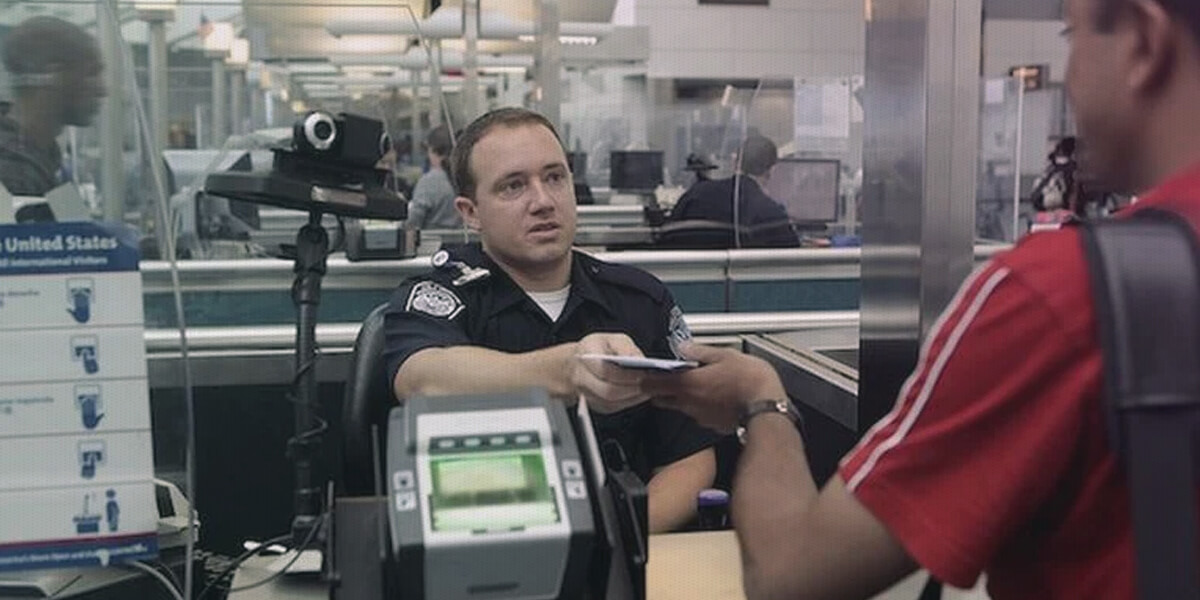
Family-based petitions are one of the most common ways in which foreign nationals can become lawful permanent residents of the United States. That privilege extends to parents of U.S. citizens. A son or daughter can sponsor parents for a green card.
This article provides of detailed overview for how a U.S. citizen can petition parents for a green card whether the parent is inside or outside the United States.
Who is eligible to sponsor a parent for a green card?
How do I start the process?
How do I prove we have a qualifying relationship?
What does the green card application process look like?
Are there other requirements?
Is there a financial sponsorship requirement?
Can my parents continue to live in their home country also?
How much will it cost to sponsor parents for a green card?
Eligibilty to Help a Parent Obtain a Green Card
To help a parent apply a green card, the eligibility requirements are generally very simple. As the son or daughter who wants to petition a parent, you must be a U.S. citizen and at least 21 years old. Although it gets a bit more complicated, this privilege also extends to certain step and adopted sons and daughters. The process begins by filing an immigrant visa petition for your parent. If both parents plan to immigrate, each will need their own petition. In order to file a successful petition, you'll need to meet these basic requirements:
- The petitioner (son or daughter) must be a U.S. citizen who is at least 21 years of age; and
- The parent must be a biological, step, or adoptive mother or father.
Unfortunately, permanent residents cannot petition a parent for a green card. The best solution is for the permanent resident to naturalize as a U.S. citizen and then submit a petition for the parent. To qualify as a step parent, the marriage must have occurred before the child turned 18 years of age.
File Form I-130 to Petition a Parent for a Green Card
By filing Form I-130, Petition for Alien Relative, with U.S. Citizeship and Immigration Services (USCIS), you are requesting that the government recognize your qualifying relationship with the parent and also requesting that a visa be reserved. When USCIS approves the I-130 petition, the government is acknowledging that there is a qualifying relationship and that a visa is available.
What’s more, immigration law defines parents of U.S. citizens as immediate relatives. Therefore, parents get priority as compared to other preference-based family relationships. There is no numerical limit on the number of immigrant visas issued each year for immediate relatives. In other words, there isn’t the long wait associated with other categories when you help your mother or father obtain permanent residence in the United States. Preference categories, on the other hand, can require several years to obtain a visa number as there are restrictions on the number of people that can obtain a green card through a preference category. Immediate relatives may also be exempt from certain issues. For example, an immediate relative who overstayed a visa can generally apply for a green card from inside the United States.
Submitting Proof of Qualifying Relationship
An important element of an immigrant visa petition package is the supporting documentation. This is the documentation or evidence that corroborates your answers in the petition. Therefore, it’s imperative to demonstrate with evidence that you have a qualifying relationship. Based on the specific type of relationship, the requirements vary.
If you are petitioning a mother, you will need to submit:
- A copy of your birth certificate showing your name and your mother’s name; and
- A copy of your naturalization certificate, citizenship certificate, or U.S. passport if you were not born in the United States.
If you are petitioning a father and you were born in wedlock, you will need to submit:
- A copy of your birth certificate showing your name and the names of both parents;
- A copy of your naturalization certificate, citizenship certificate, or U.S. passport if you were not born in the United States; and
- A copy of your parents’ civil marriage certificate.
If you are petitioning a father and you were born out of wedlock and were not legitimated by your father before your 18th birthday, you will need to submit:
- A copy of your birth certificate showing your name and your father's name;
- A copy of your naturalization certificate, citizenship certificate, or U.S. passport if you were not born in the United States; and
- Evidence that an emotional or financial bond existed between you and your father before you were married or reached the age of 21, whichever came first.
If you are petitioning a father, and you were born out of wedlock and were legitimated by your father before your 18th birthday, you will need to submit:
- A copy of your birth certificate showing your name and your father's name;
- A copy of your naturalization certificate, citizenship certificate, or U.S. passport if you were not born in the United States; and
- Evidence that you were legitimated before your 18th birthday through the marriage of your natural parents, the laws of your state or country (of birth or residence), or the laws of your father’s state or country (of birth or residence).
If you are petitioning a step mother or step father, you will need to submit:
- A copy of your birth certificate showing the names of your birth parents;
- A copy of your naturalization certificate, citizenship certificate, or U.S. passport if you were not born in the United States;
- A copy of the civil marriage certificate of your birth parent to your step-parent showing that the marriage occurred before your 18th birthday; and
- A copy of any divorce decrees, death certificates, or annulment decrees to show that any previous marriage entered into by your natural or step-parent ended legally.
If you are petitioning an adoptive parent, you will need to submit:
- A copy of your birth certificate;
- A copy of your naturalization certificate, citizenship certificate, or U.S. passport if you were not born in the United States;
- A certified copy of the adoption certificate showing that the adoption took place before your 16th birthday;
- A statement and evidence showing the dates and places you have lived together with your parent.
A complete set of I-130 instructions can be found on USCIS.gov or by using CitizenPath's Form I-130 preparation software. If you are helping both parents get a green card, you will need to file a separate Form I-130 for each parent.
Generally, most people can file the I-130 petition on their own. However, adopted petitioners that want to help a parent get a green card should consult with an experienced immigration attorney. The laws surrounding adoptive relationships are complex and can be best addressed by an attorney.
Paths to Sponsor Parents for a Green Card
Filing Form I-130 is just the first step to sponsor parents for a green card. When USCIS approves Form I-130, it's not the grant of permanent resident status (green card). It's simply the recognition by the U.S. government that you have a qualifying relationship.
Next, your parent must also apply for permanent residence. There are essentially two ways that your parent can apply for the green card:

Consular Processing
Parent is Living Outside the U.S.
If your parents are living abroad, they will have to wait until the Form I-130 is approved before starting the green card application process through a U.S. embassy or consular office. After USCIS approves the petition, they transition your case to an embassy or consulate after going through the National Visa Center. For a more detailed overview, visit our page on consular processing.
Adjustment of Status
Parent is Currently in the U.S.
If your mother and/or father are physically present in the United States (through a visa or other lawful means), they may be eligible to file a green card application while staying present. Your parent may only file the adjustment of status application for a green card if they are already in the U.S. For a more detailed overview, visit our page on adjustment of status.
It's important to note that foreign nationals should not enter the United States on a B-2 visa (or most other nonimmigrant visas) with the intent to adjust status. When United States grants a foreign national a tourist visa or some other nonimmigrant visa, it does so with the understanding that the visitor intends to return to the place of origin. However, if a foreign national uses a nonimmigrant visa as a way of gaining U.S. entry with the actual goal of adjusting status to permanent resident, the U.S. government considers this a visa violation. On the other hand, it is permissible to adjust status if the visitor enters with an intent to depart but then plans change during the course of the trip.
Your Parent Must Not be Inadmissible
Once your parents prove that they meet the basic requirements to immigrate as the parents of a U.S. citizen, they must also show that they’re not inadmissible to the United States. In other words, they’ll need to demonstrate that they don't pose a danger to U.S. society on financial, health, security, immigration violation, or criminal grounds.
Financial
You’ll need to demonstrate that you have sufficient income or assets to financially sponsor parents for a green card. Your income should generally be at least 125 percent of the U.S. poverty guidelines (in addition to supporting your own family). If your parents can’t support themselves, this measure helps to ensure that they won't depend on government assistance. Learn more about financial sponsorship and current federal poverty guidelines.
Health
Your parent will be required to have a medical examination conducted by a U.S. government-approved physician. The examination is required to establish that an applicant is not a public health risk such as a carrier of a disease that presents a public health risk, or having a dangerous physical or mental disorder. Learn more about the immigration medical exam and vaccinations.
Immigration Violations
Immigration officials will review your parent’s immigration history. They will likely deny the application if your parent has overstayed a visa by six months or more (and then departed the U.S.), or if your parent has ever entered the country unlawfully. The government will also seek to determine if your parent's past visas (if applicable) have ever been misused.
Criminal Record
Your parents will certainly run into problems if they have committed certain crimes, like aggravated felonies, drug crimes, or acts of terrorism.
If you believe that you mother or father may be inadmissible for any reason, contact an experienced immigration attorney before filing any USCIS form. A waiver may be available in certain cases.
Financial Sponsorship of Parents for a Green Card
In addition to a petitioner, family-based green card applicants must also have a financial sponsor. Typically, the petitioner also acts as the sponsor. But it is possible to use a third-party sponsor when the petitioner can't meet the income requirements.
As briefly described in the section above, family-based applicants must remove the public charge ground of inadmissibility in order to immigrate. An explanation of the public charge rule is beyond the scope of this article. However, the most straight forward way to address this requirement is for the petitioner to submit Form I-864, Affidavit of Support, along with evidence that the sponsor has an income that is at least 125 percent of the federal poverty guidelines based on the household size.
If you're not ready to tackle this requirement by yourself, use Citizenpath's Affidavit of Support Package to prepare the Form I-864 and get a personalized checklist of supporting documents for your situation.
Abandonment of Residence
A green card is intended for immigrants who intend to live in the United States permanently. After all, it is known as a permanent resident card. Thus, obtaining a green card for your parents is not a good strategy so that they can make extended visits to the U.S. more easily. If at any time the U.S. government believes that your parent does not intend to make the U.S. a permanent home, a green card can be revoked.
If your parent leaves the U.S., even for a short time, and upon return the Customs and Border Protection (CBP) officer believes that their real home is outside the U.S., the officer can deny entry to the U.S. and revoke the green card. Travel outside the U.S. of six months or longer will likely raise questions about residence. Travel of a year or more raises a presumption that they have abandoned their residence.
Costs to Sponsor Parents for a Green Card
Government fees will vary by path and a variety of other factors. Under the current fee structure at the time of writing this article, the entire consular processing costs run about $1,200. On the other hand, adjustment of status fees are approximately $1,760.
Obviously, your decision on how you prepare the forms and application packages will affect overall cost. Your options range from doing it yourself to hiring an attorney. CitizenPath provides a vary affordable safety net for individuals with straight forward cases who want the reassurance they're doing everything correctly.
About CitizenPath
CitizenPath provides simple, affordable, step-by-step guidance through USCIS immigration applications. Individuals, attorneys and non-profits use the service on desktop or mobile device to prepare immigration forms accurately, avoiding costly delays. CitizenPath allows users to try the service for free and provides a 100% money-back guarantee that USCIS will approve the application or petition. We provide support for the Immigrant Visa Petition Package (Form I-130), Adjustment of Status Package (Form I-485), and several other immigration services.
Want more immigration tips and how-to information for your family?
Sign up for CitizenPath’s FREE immigration newsletter and
SAVE 10%
on our immigration services







